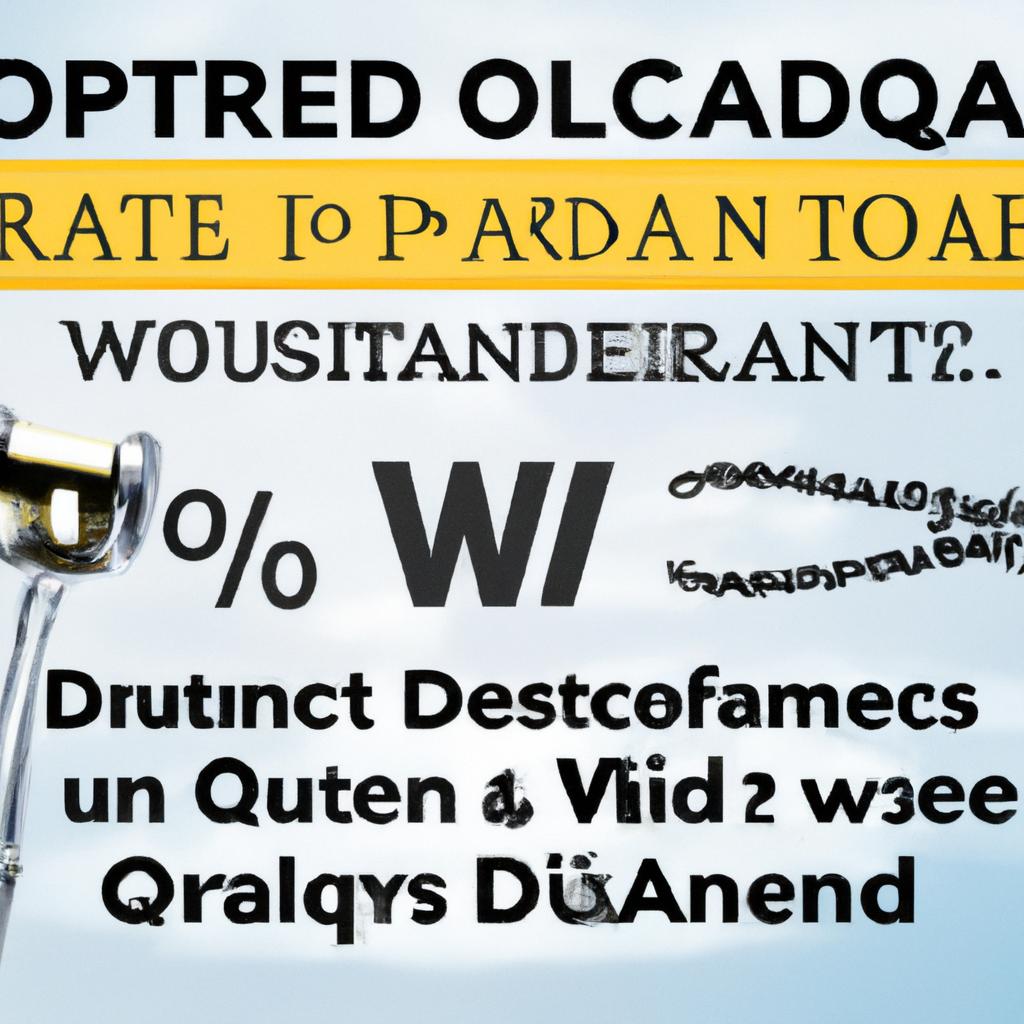In the realm of property transactions, two types of deeds are predominantly used: the quitclaim deed and the warranty deed. Despite their similar purposes, each offers unique benefits and potential drawbacks for both buyers and sellers. This article aims to demystify these two essential legal documents to help you confidently and clearly navigate your real estate dealings.
Quit Claim Deed: Grasping the Fundamentals and Constraints
When it comes to transferring property rights, two types of deeds are typically used: quit claim deeds and warranty deeds. While both facilitate the transfer of property, they differ in their scope and the level of protection they offer to the buyer.
A quit claim deed essentially conveys any interest the grantor might have in the property, without any assurances about the title. This means that the grantee receives the property as-is, without any guarantees or promises about the title’s condition. Conversely, a warranty deed offers the grantee more protection, as the grantor assures that they have clear ownership of the property and will defend against any title claims.
Understanding the constraints of a quit claim deed is crucial before entering into a real estate transaction. While it may be a straightforward way to transfer property, it does not offer the same protection level as a warranty deed. Conducting thorough due diligence and considering the associated risks before opting to use a quit claim deed is essential.
Warranty Deed: Advantages and Safeguards for Property Purchasers
When it comes to transferring property ownership, two types of deeds are commonly used: quit claim deeds and warranty deeds. Both serve the same purpose of transferring property rights, but they offer different protection levels for buyers. Understanding the distinctions between these two deeds is crucial for property buyers to make informed decisions.
**Quit Claim Deed:**
- Provides the minimum level of protection for the buyer
- Does not assure that the seller genuinely owns the property being transferred
- Only conveys any interest the seller might have in the property
**Warranty Deed:**
- Offers the maximum level of protection for the buyer
- Assures that the seller has a clear title to the property being transferred
- May include various warranties, such as the right to sell, the right to convey, the right against encumbrances, and the quiet enjoyment of the property
When choosing between a quit claim deed and a warranty deed, it’s crucial for property buyers to consider the benefits and protections each type of deed offers. While quit claim deeds may be suitable for certain transactions, warranty deeds provide a higher level of security and peace of mind for buyers.
Selecting the Appropriate Deed for Your Property Transaction
In real estate transactions, selecting the right deed is vital to safeguard your interests. Quit claim deeds and warranty deeds are two common types of deeds, each offering different protection levels and guarantees.
A quit claim deed is often used in situations where ownership is transferred without any guarantees about the property’s title. This type of deed merely conveys any interest the grantor has in the property to the grantee, without any promises about the title’s validity. Quit claim deeds are typically used in situations where the parties involved trust each other and are not worried about potential title issues.
Conversely, a warranty deed provides the grantee with certain assurances about the property’s title. By accepting a warranty deed, the grantor promises that they have valid property ownership and that there are no undisclosed claims or liens against it. Warranty deeds offer more protection to the grantee and are commonly used in conventional real estate transactions.
Key Factors to Consider When Choosing Between Quit Claim and Warranty Deeds
When choosing between quit claim and warranty deeds, several key factors should be considered to ensure you make the best decision for your specific situation.
Property Rights: One of the main distinctions between quit claim and warranty deeds is the guarantee level they provide regarding property rights. A warranty deed offers the highest protection level, as it assures that the seller has clear property ownership and the right to sell it. Conversely, a quit claim deed offers no assurances about the seller’s property ownership.
Liability: Another crucial factor to consider is the liability associated with each deed type. With a warranty deed, the seller is legally responsible for any title defects, and the buyer can seek legal recourse if any issues arise. In contrast, a quit claim deed offers no such protection, meaning the buyer assumes all risks associated with the property’s title.
Final Thoughts
In conclusion, understanding the differences between quit claim and warranty deeds is vital when navigating property transactions. Whether you’re looking to transfer property quickly or ensure future peace of mind, choosing the right deed can make all the difference. By considering the advantages and drawbacks of each option, you can make an informed decision that suits your specific needs. So, the next time you need to transfer property, remember to consider the benefits and limitations of both quit claim and warranty deeds. Happy deed hunting!

Understanding the Differences: Quit Claim Deed vs. Warranty Deed
When it comes to transferring property ownership, two common types of deeds are often used: quit claim deeds and warranty deeds. While both serve the same basic purpose of transferring ownership from one party to another, there are key differences between the two that can impact the buyer and seller. In this article, we will explore the differences between quit claim deeds and warranty deeds to help you understand which one may be right for your specific situation.
Quit Claim Deed
A quit claim deed is a legal document used to transfer ownership of a property from one party to another. Unlike a warranty deed, a quit claim deed offers no guarantees about the status of the property title. Essentially, the seller of the property is relinquishing any claims they may have to the property without making any promises about the property’s history or legal status.
- Commonly used in family transfers or between parties who know and trust each other
- Can be used to clear up title issues or defects
- No warranties or guarantees related to the property’s title
- Not suitable for transactions where title insurance may be needed
Warranty Deed
A warranty deed, on the other hand, provides a much higher level of protection for the buyer. With a warranty deed, the seller guarantees that they have clear title to the property and can legally transfer ownership. If any issues arise with the title after the sale, the seller is typically responsible for resolving them.
- Includes warranties and guarantees related to the property’s title
- Offers more protection for the buyer
- Commonly used in real estate transactions where title insurance is desired
- Provides legal protection for the buyer against undisclosed liens or claims against the property
Which One Should You Choose?
Deciding between a quit claim deed and a warranty deed depends on your specific situation and the level of protection you desire. If you are buying a property from a family member or someone you trust and there are no concerns about the property’s title, a quit claim deed may be sufficient. However, if you are purchasing a property from a third party or want the assurance of clear title, a warranty deed is likely the better option.
Benefits and Practical Tips
When choosing between a quit claim deed and a warranty deed, consider the following benefits and practical tips:
- Consult with a real estate attorney or title professional to understand the implications of each type of deed
- Obtain title insurance to protect your investment in case of any unforeseen title issues
- Review the title history of the property to ensure there are no outstanding liens or claims
- Ensure the deed is properly executed and recorded with the appropriate county or municipal office
Case Studies
Here are a few case studies to illustrate the differences between quit claim deeds and warranty deeds in real-life scenarios:
| Case Study | Quit Claim Deed | Warranty Deed |
|---|---|---|
| Family Transfer | Used to transfer property between siblings with no concerns about title issues | Provides peace of mind for the buyer that the seller has clear title to the property |
| Real Estate Transaction | Not typically used in traditional real estate transactions where title insurance is desired | Offers legal protection for the buyer in case of undisclosed title issues |
Firsthand Experience
As a real estate professional, I have encountered situations where both quit claim deeds and warranty deeds were appropriate for specific transactions. In cases where the property’s title is clear and there is trust between the parties, a quit claim deed can expedite the transfer process. However, for transactions involving unknown parties or potential title issues, a warranty deed provides the necessary protection for both buyers and sellers.
In conclusion, understanding the differences between quit claim deeds and warranty deeds is crucial when transferring property ownership. By weighing the benefits and risks associated with each type of deed and seeking professional advice when needed, you can ensure a smooth and secure real estate transaction.


